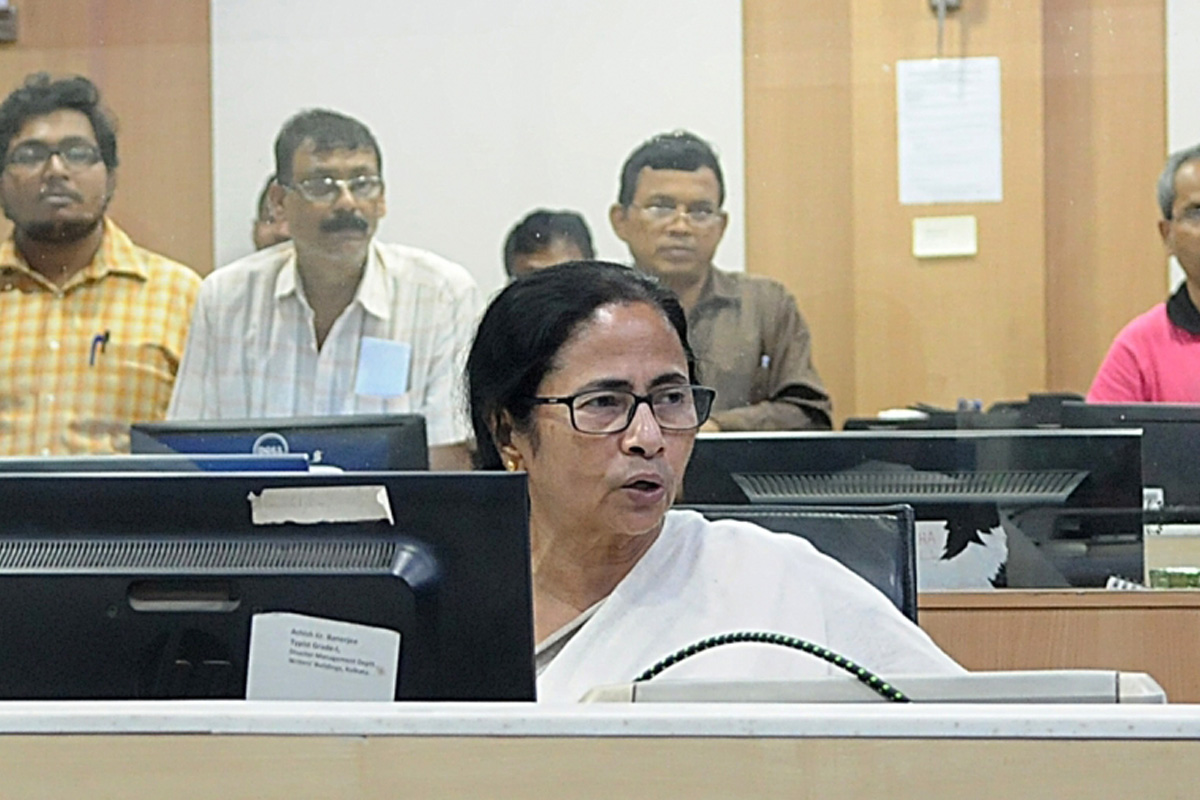Cold storage association demands storage rent rise from govt
West Bengal Cold Storage Association held their 60th annual general meeting on Wednesday.
The Ayodhya verdict was passed by the apex court on November 9 and not a single leader of the ruling TMC in West Bengal, including Banerjee, who is party supremo, has come out with a reaction on it.

Photo: IANS
West Bengal Chief Minister Mamata Banerjee refrained from reacting on Ayodhya verdict on Thursday, six days since it was passed by the Supreme Court, saying she is too busy with the relief work after Cyclone Bulbul.
The Ayodhya verdict was passed by the apex court on November 9 and not a single leader of the ruling TMC in West Bengal, including Banerjee, who is party supremo, has come out with a reaction on it.
Advertisement
“I don’t want to comment on it as this is a government meeting and I am too busy with the cyclone relief work,” Banerjee said while addressing a press conference post an administrative review meeting.
Advertisement
A total six lakh people have been affected and over five lakh houses damaged due to the cyclone, which made landfall late on Saturday between Sagar Islands in West Bengal and Khepupara in Bangladesh. A total 14 people, including fishermen of a capsized trawler whose bodies were found by the Coast Guard, had died in the calamity.
According to TMC sources, there has been “strict instruction” from the party top brass asking its leaders not to “utter a single word” on the judgement.
“We have been asked not to speak on this issue. Only our party supremo Mamata Banerjee will speak on it if needed.
Or it will be by someone assigned by her,” a senior TMC leader had said on Saturday.
TMC’s silence on the historic verdict by the Supreme Court on Saturday allowing the construction of a Ram temple at the disputed site had drawn sharp reactions from BJP and the Congress.
West Bengal BJP president Dilip Ghosh Saturday questioned TMC’s silence on the Ayodhya verdict and said the ruling party of Bengal always prefers to keep quiet when it comes to taking a stand on issues related to national and social interests.
In one of the most important and most anticipated judgements in India’s history, a five-judge Constitution bench of Supreme Court headed by Chief Justice Ranjan Gogoi on Saturday put an end to the more than a century old dispute that has torn the social fabric of the nation.
The court in its unanimous verdict cleared the way for the construction of a Ram Temple at the disputed site at Ayodhya and directed the Centre to allot a five-acre plot to the Sunni Waqf Board for building a mosque.
Advertisement